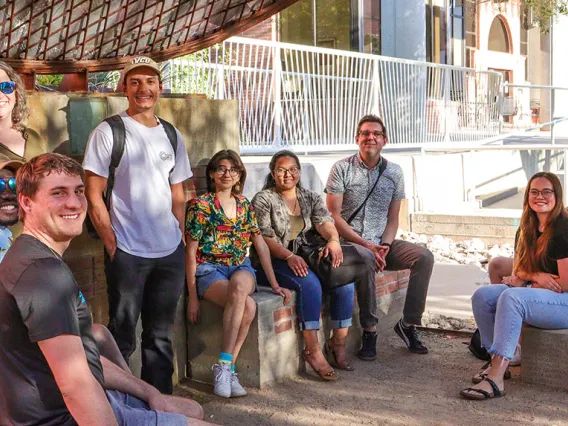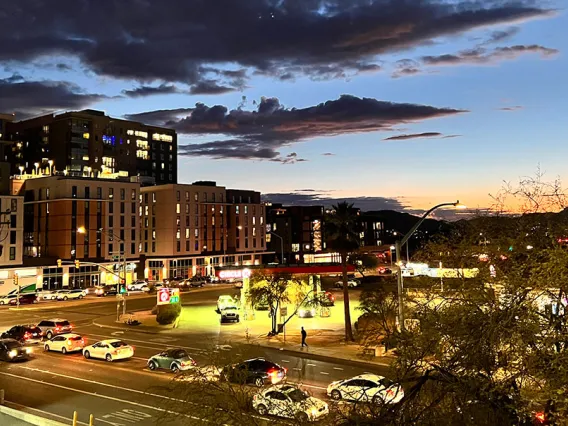Arlie Adkins
Programs
-
School of Landscape Architecture and Planning
-
Urban Planning

Canon Douglass House
Documents
Areas of Expertise
-
Affordable housing
-
Health and safety disparities
-
Transportation
-
Walkability
Biography
Arlie Adkins is an associate professor with appointments in CAPLA's School of Landscape Architecture and Planning and the Health Promotion Sciences Department within the Mel and Enid Zuckerman College of Public Health. His research focuses on understanding the interconnectedness of transportation equity, affordable housing, and various health and safety disparities related to urban transportation systems. He teaches transportation planning, planning theory, and the planning master's capstone studio. He was co-PI of the CDC-funded Physical Activity Policy Research Network (PAPRN+) collaborating center at UA. He has a PhD from Portland State University and a master’s degree in city planning from UC Berkeley. Dr. Adkins previously worked in the planning department at TriMet (the transit agency for the Portland, Oregon region) and for Flexcar, a pioneer of carsharing in North America.
Research topics include:
- Addressing transportation system health and safety disparities
- Applicability of standard measures of walkability in different socioeconomic and sociocultural contexts
- The role of affordable housing in providing access to neighborhoods that support access to opportunities and physical activity
His research has been funded by the Federal Highway Administration, National Institute for Transportation and Communities, and the Centers for Disease Control and Prevention
News:
- UA Urban Planning Capstone wins best graduate student planning project award from Arizona Chapter of the American Planning Association
- Qualitative Pedestrian Environments Data (QPED) Toolkit Workshop in Portland for 2019 Transportation and Communities Summit on Sept. 20. More information at www.qped.org.
- Article published in Journal of Transport and Health: Differences in social and physical dimensions of perceived walkability in Mexican American and non-hispanic white walking environments in Tucson, Arizona
- Article published in Research in Transportation Business & Management with Carrie Makarewicz: “A little bit happy”: How performance metrics shortchange pedestrian infrastructure funding
- Article published in Journal of the American Planning Association: Contextualizing Walkability: Do Relationships Between Built Environments and Walking Vary by Socioeconomic Context?
- Article published in Housing Policy Debate with Gary Pivo and Drew Sanderford: How Location Efficient is LIHTC? Measuring and Explaining State Level Achievement
- Article published in Housing Policy Debate with Andree Tremoulet and Ryan Dann: Moving to Location Affordability? Housing Choice Vouchers and Residential Relocation in the Portland, Oregon, Region.
- Nov. 1, 2015 - Dr. Adkins recently co-led a study on racial bias in driver stopping behavior at crosswalks that is now published in Transportation Research Park F: Traffic Psychology and Behavior and is receiving national media attention from sources like The Washington Post, The Atlantic's City Lab, NBC News, The Huffington Post, and The Boston Globe.
Selected publications:
COMING SOON: Measuring Perceptions of Social Environments for Walking: a Scoping Review of Walkability Surveys. Health and Place.



